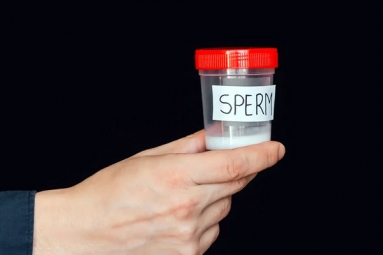Spotting Blood in Urine can reveal Hidden Kidney Cancer Risks
September 22, 2025 15:47
(Image source from: Canva.com)
Seeing blood in your urine can be alarming, and that’s understandable. It could be something simple like a urinary tract infection or a small kidney stone, but it might also indicate a more serious problem such as kidney disease or cancer. Health professionals warn that ignoring this sign can lead to delays in getting important treatment. Blood in urine can be seen with the naked eye (known as Gross hematuria) or only under a microscope, referred to as microscopic hematuria. This symptom should always be taken seriously. For many individuals in the early stages of kidney cancer, it might be the first and sometimes the only sign they notice.
Certain warning signs require urgent medical care such as:
Discomfort or pain while urinating
Fever
Sudden weight loss
Pain in the sides or back
Seeing blood clots in urine.
Kidney cancer is often described as a “silent disease" because it may not show many symptoms early on. “Almost a quarter of individuals diagnosed with kidney cancer do not have other symptoms at the time of their diagnosis. That’s why blood in urine should never be considered unimportant," explained Dr. Hande. According to Dr. Mohammed Fahad Khan, a Nephrology Consultant and Transplant Physician at Manipal Hospital, Old Airport Road, Bengaluru, painless blood in urine is especially risky to ignore. “It can be a crucial warning sign of hidden kidney disease or even suggest kidney cancer. Any ongoing or unclear blood in urine, particularly if there's no pain, should be thoroughly checked by a medical professional," he stated.
Doctors usually start with a urine analysis and a kidney ultrasound. Based on what they find, they might request further imaging like a CT or MRI scan. “Sometimes, a PET scan can help see if the disease has spread. We also advise getting a tissue sample tested by a urologist, with treatment tailoring to how far the disease has progressed," Dr. Hande noted. For those over 40, especially with risk factors like smoking, long-term use of pain medications, or being around harmful substances at work, the chance of cancer increases. “From a nephrologist's viewpoint, blood in urine can also point to glomerular conditions or long-lasting kidney disease," Dr. Khan highlighted.
Blood in urine is never a small concern. It signals that something may be wrong inside your body – something quiet yet possibly severe. The quicker the issue is identified, the better the chances for a positive outcome.







